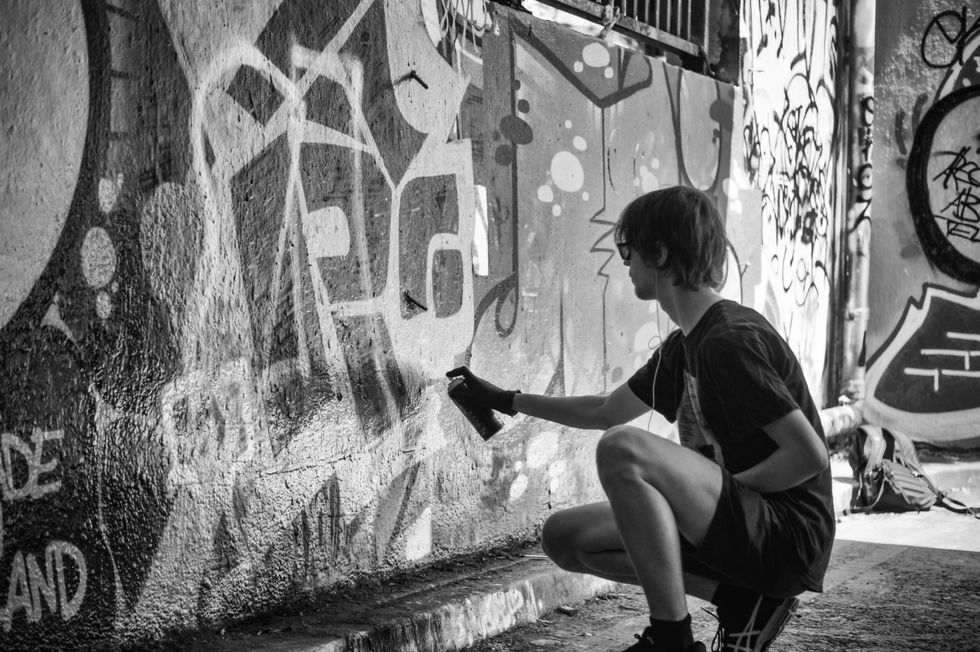It didn't take me long to figure out I couldn't be an animator.
I failed my final AP Studio Art test. My teacher pulled out her hair over my inability to draw a straight line. No matter how much overtime I put in, I lagged behind my classmates, both in amount of art produced and the social consciousness behind my work. They made heartrending pieces on immigration, because they truly and fully empathized with all the people fighting for their lives at the borders.
I painted questionably human-shaped blobs in acrylic because they looked cool.
I came out of that class thinking I was an artistic flop. Good enough to play with the big dogs, maybe, but not to truly be one of them. I didn't have the maturity, the skill set, the motor control or the time to devote myself to art.
Thus, my dreams of animation, spurred on by my adoration of colorful shows such as Steven Universe, got the ax. I stopped buying sketchbooks and markers. I promised myself to never again dream of California studios or of proposing my latest creative brainchild to network executives.
Instead, I dove headfirst into liberal arts college and forced myself into journalism, for the sake of a viable career and familial approval. Maybe, too, I just didn't want to confront that painful idea that I would never be "good enough," that I didn't have the skills to belong where I wanted to belong.
It turned out, though, stepping away from art like this was just what I needed to get better at it-- and just what I needed to maybe, finally, be "good enough." After three years, I now have the courage to take an animation class next semester.
Here's how I found the confidence to do that: I gave myself space to unapologetically suck at art.
When I left high school, I got a lot more freedom to do that. That old sketchbook I had in my bag, those comic covers I designed on the bus, they were my property now; not for the judgment of any stupid, artsy bigwig who slapped that failing grade on a semester's worth of blood, sweat and tears (it probably deserved it, but that's not the point).
Oh, my latest piece has terrible proportions and shit composition? So what? Nobody has to see. I can learn from it and take bigger artistic risks in the future without being penalized. And nobody has to know that I've practiced drawing hands for eons and that some (most) of them still come out looking like dislocated demon claws.
But I've also had a come-to-Jesus talk with myself-- I've needed to stop associating my own worth with what I create. Because, in order to make crappy stuff, keep my self esteem in tact and improve, I have to understand that being able to make pretty pen markings on paper does not mean I am worth any more than someone who can't.
As cheesy as it is, the only thing that determines my worth, determines if I deserve to belong somewhere-- it's my trying to be a good, honorable person. Not my art, not my writing, not whatever skill of mine people tell me I'm good at that day.
It's such a paradox, really; to improve at something, you have to distance yourself enough from it. To get out of your own way, you have to stop caring so much. But, without that caring, you risk not pursuing the skill at all and thus stagnating.
I'll leave you with an anecdote that, in a way, further proves this point.



 Photo by
Photo by  Photo by
Photo by  Photo by
Photo by 


















